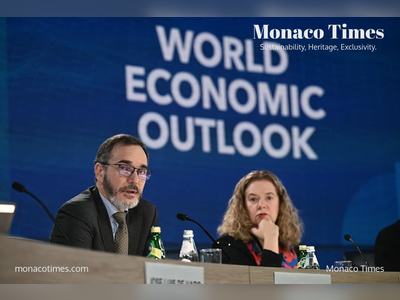Undocumented Workers in France: Struggles and Aspirations
Employees in the Var region share their experiences navigating residency regulations while working in the restaurant industry.
Ernest, a 21-year-old Ivorian, is currently counting his pay slips, which will total twelve by the end of the year, granting him the necessary seniority for potential regularization through employment in France.
Under a 2025 Interior Ministry circular, undocumented immigrants must fulfill specific residency and work criteria, particularly in sectors experiencing labor shortages, to qualify for exceptional residency permits.
Employed in a restaurant in the Gulf of Saint-Tropez, Ernest meets many of the outlined criteria but advocates for a simplified regularization process, expressing a desire to integrate into French society.
An ex-asylum seeker, he has been undocumented since his claim was rejected in February 2024. "It's not easy being without papers; we want to make it, to integrate.
Contrary to what many think, we did not cross the Mediterranean to become criminals," he explained.
Another undocumented worker, Uzbek national Yunus, aged 24, faces a similar predicament after his asylum request was turned down.
He asserts he cannot return to Afghanistan due to the Taliban's control.
Struggling with the French language, he emphasizes his ambition to build a life in France, referring to it as his "second country." He has secured a position in a pizzeria in Toulon, undertaking various tasks from cooking to deliveries, all while accumulating pay slips crucial for his regularization hopes.
Both Ernest and Yunus consider themselves fortunate for obtaining pay slips, a privilege not shared by all undocumented workers.
Ernest's employer has declared him legally, a significant step forward compared to his previous situation.
However, he acknowledges the challenges associated with his employment status, noting, "I feel like I am being used." He is officially registered as a server but finds himself working as a cook, often clocking up to 70 hours per week without adequate compensation.
Yunus faces similar challenges, as he is recognized only for a portion of the hours he works, receiving half his wage in unofficial payments.
"I cannot afford to complain since I am in need," he remarked.
As a new father, Ernest holds on to the hope that the Union of Trades and Hospitality Industries will support the collective requests for better conditions for undocumented workers.
He is concerned by the frequent changes in laws surrounding residency, prompting him to seek alternative routes for regularization by applying as a sponsor for a refugee child.
Under a 2025 Interior Ministry circular, undocumented immigrants must fulfill specific residency and work criteria, particularly in sectors experiencing labor shortages, to qualify for exceptional residency permits.
Employed in a restaurant in the Gulf of Saint-Tropez, Ernest meets many of the outlined criteria but advocates for a simplified regularization process, expressing a desire to integrate into French society.
An ex-asylum seeker, he has been undocumented since his claim was rejected in February 2024. "It's not easy being without papers; we want to make it, to integrate.
Contrary to what many think, we did not cross the Mediterranean to become criminals," he explained.
Another undocumented worker, Uzbek national Yunus, aged 24, faces a similar predicament after his asylum request was turned down.
He asserts he cannot return to Afghanistan due to the Taliban's control.
Struggling with the French language, he emphasizes his ambition to build a life in France, referring to it as his "second country." He has secured a position in a pizzeria in Toulon, undertaking various tasks from cooking to deliveries, all while accumulating pay slips crucial for his regularization hopes.
Both Ernest and Yunus consider themselves fortunate for obtaining pay slips, a privilege not shared by all undocumented workers.
Ernest's employer has declared him legally, a significant step forward compared to his previous situation.
However, he acknowledges the challenges associated with his employment status, noting, "I feel like I am being used." He is officially registered as a server but finds himself working as a cook, often clocking up to 70 hours per week without adequate compensation.
Yunus faces similar challenges, as he is recognized only for a portion of the hours he works, receiving half his wage in unofficial payments.
"I cannot afford to complain since I am in need," he remarked.
As a new father, Ernest holds on to the hope that the Union of Trades and Hospitality Industries will support the collective requests for better conditions for undocumented workers.
He is concerned by the frequent changes in laws surrounding residency, prompting him to seek alternative routes for regularization by applying as a sponsor for a refugee child.











